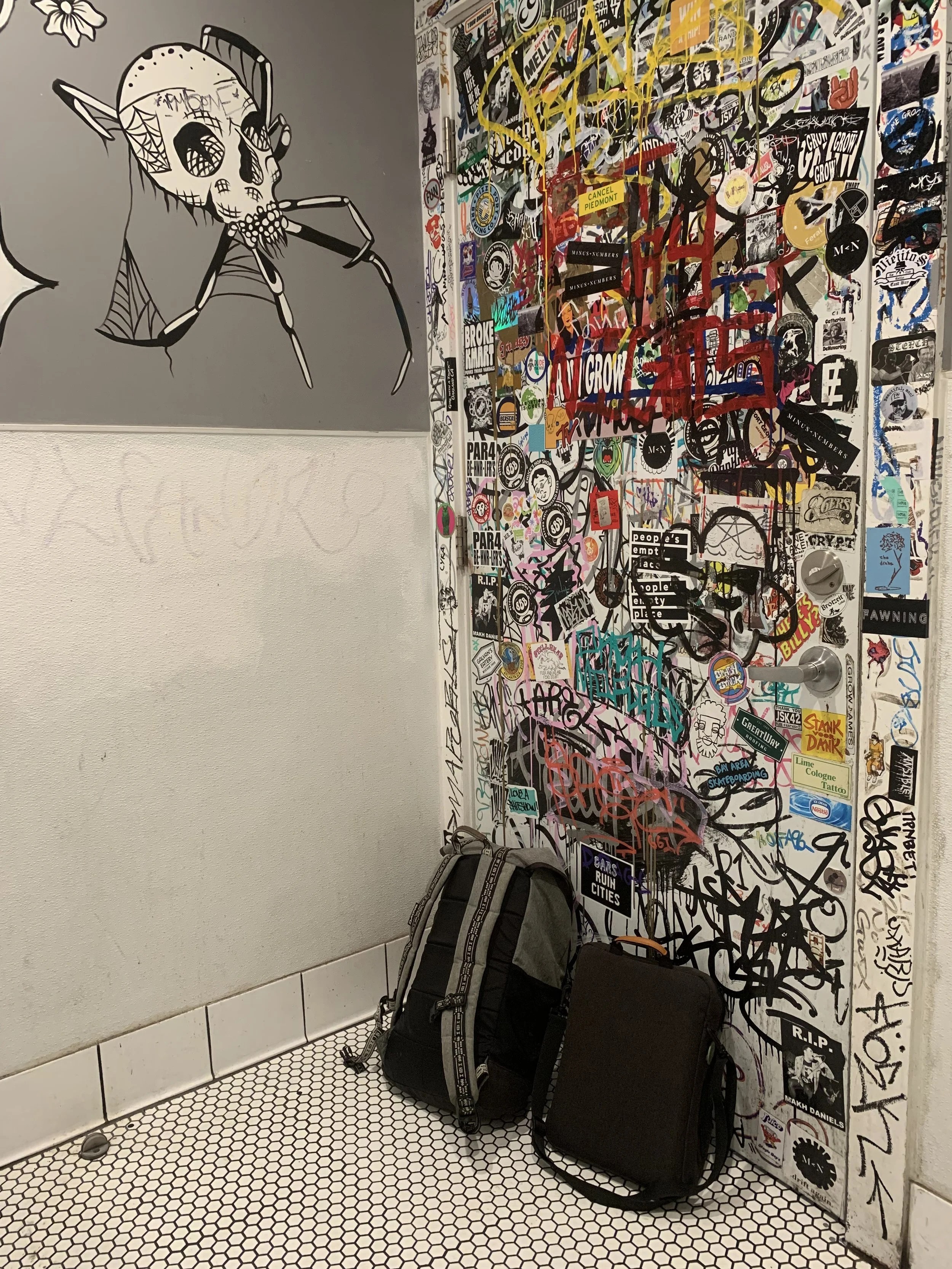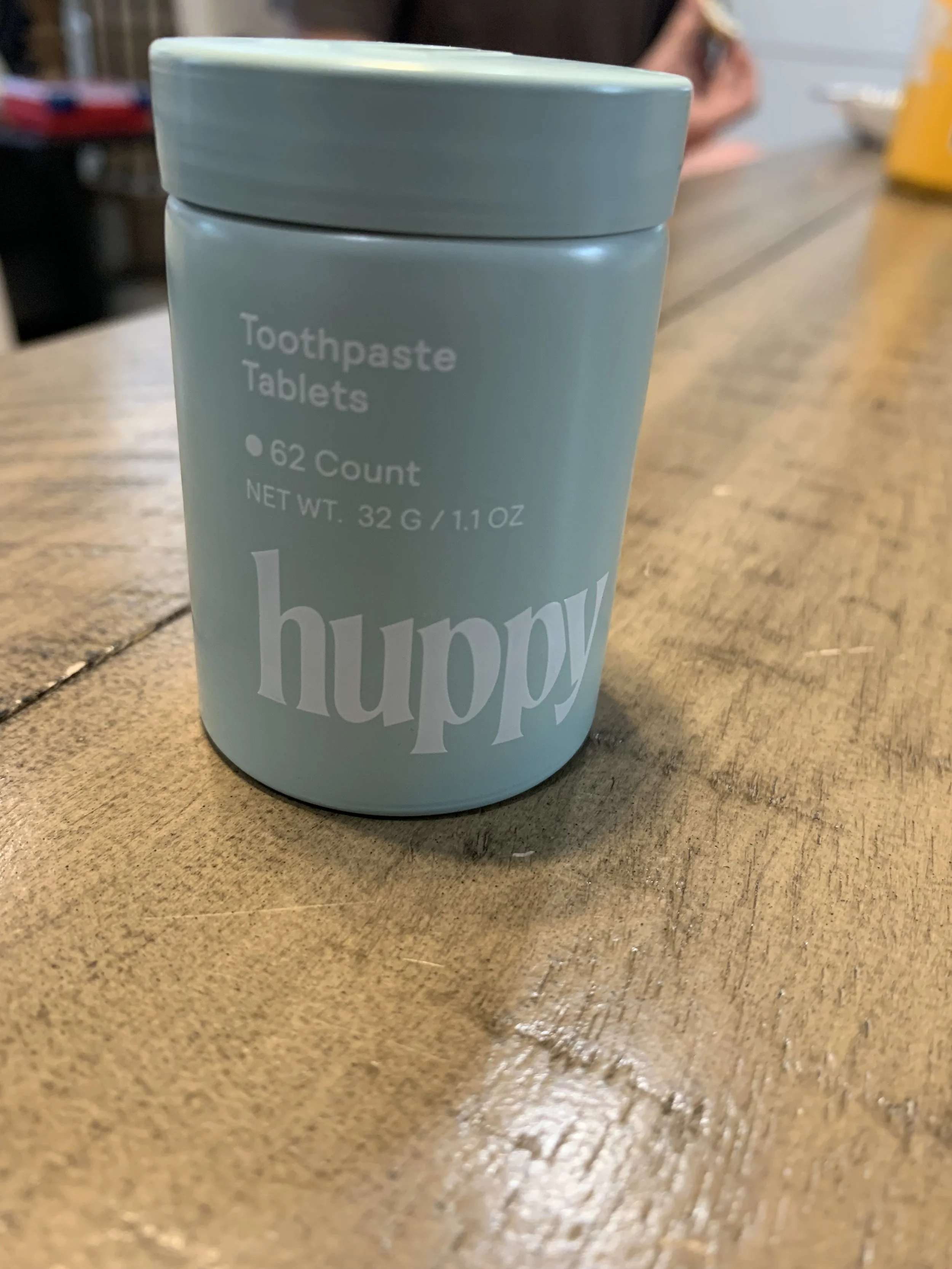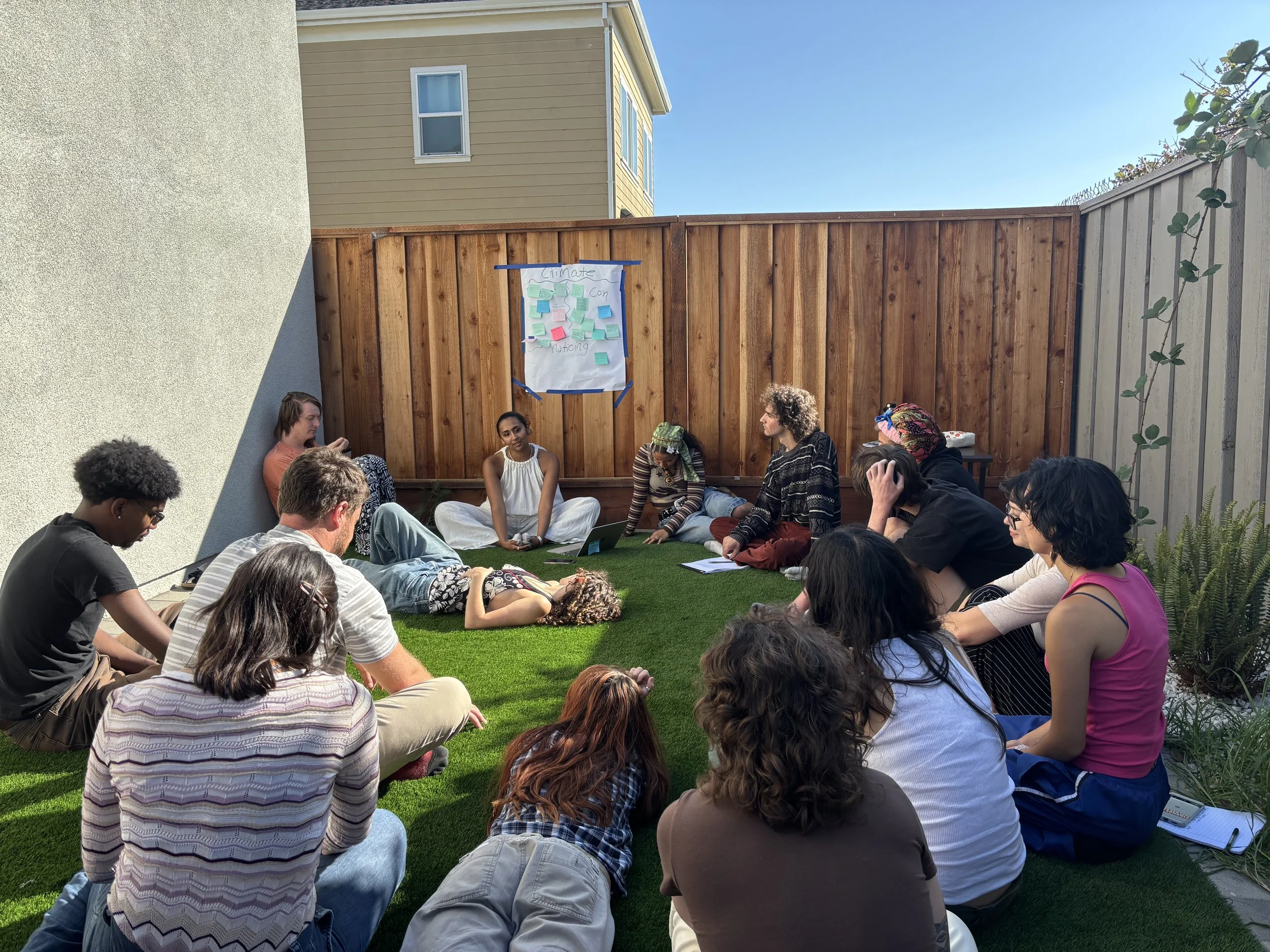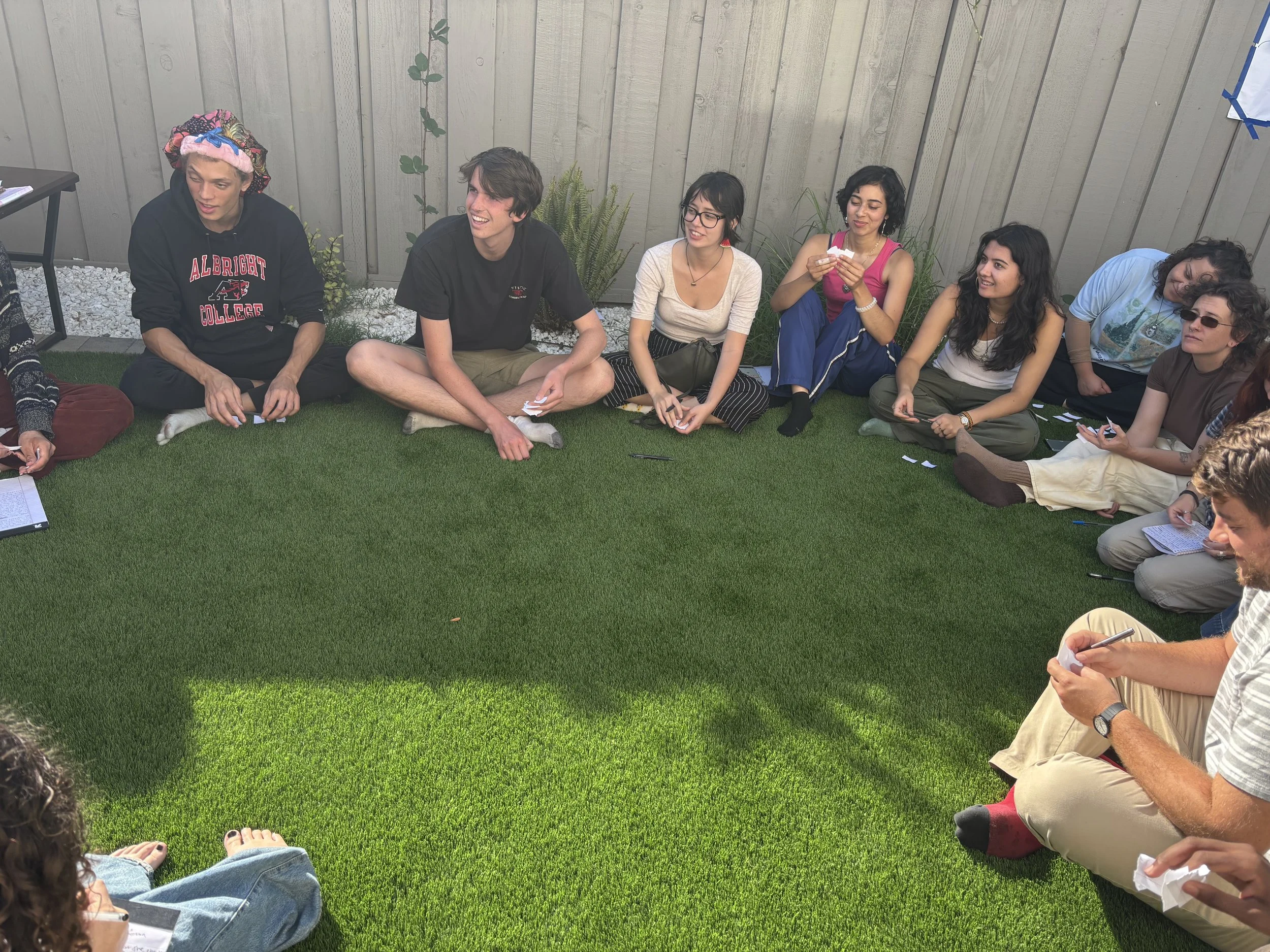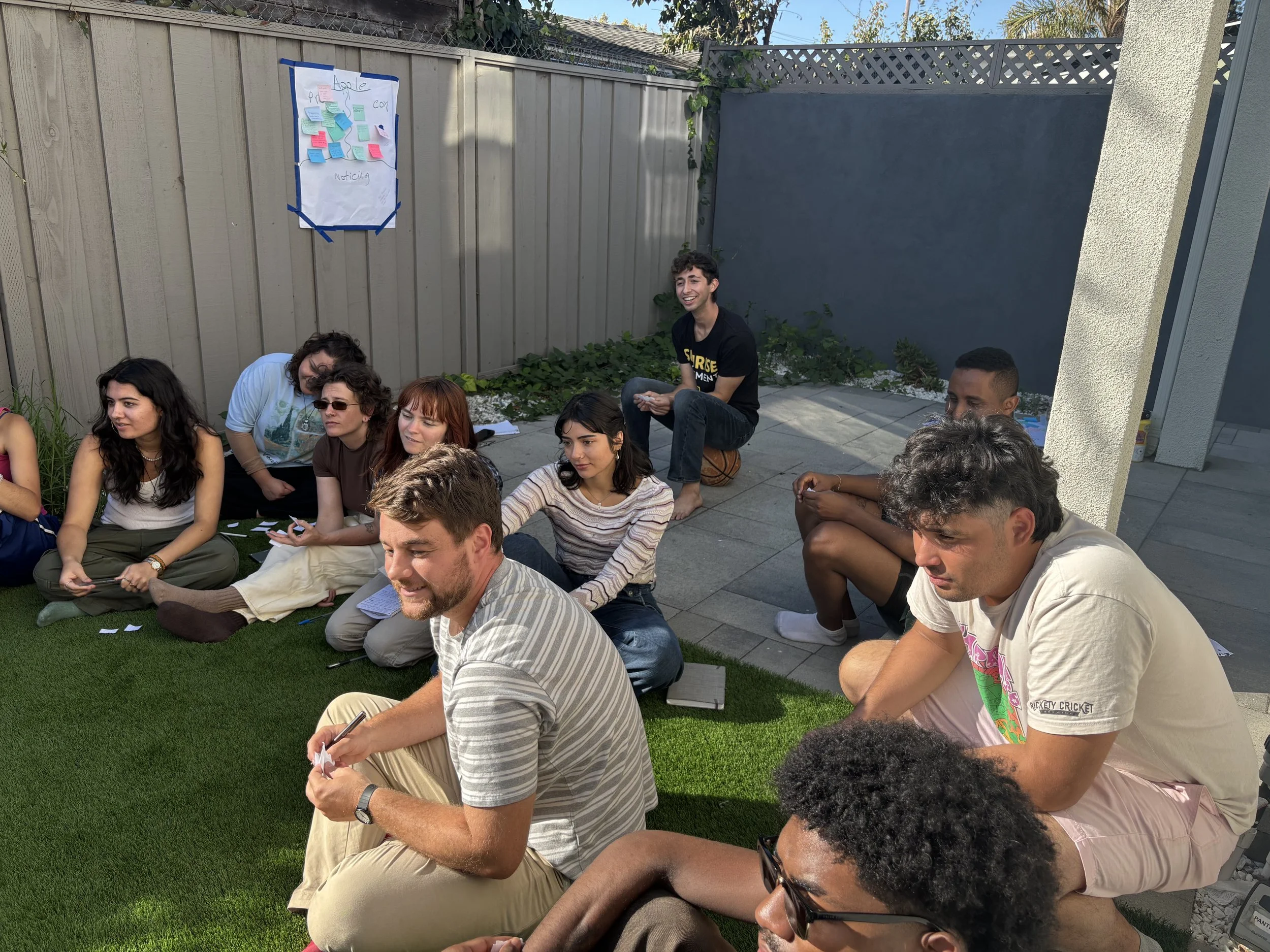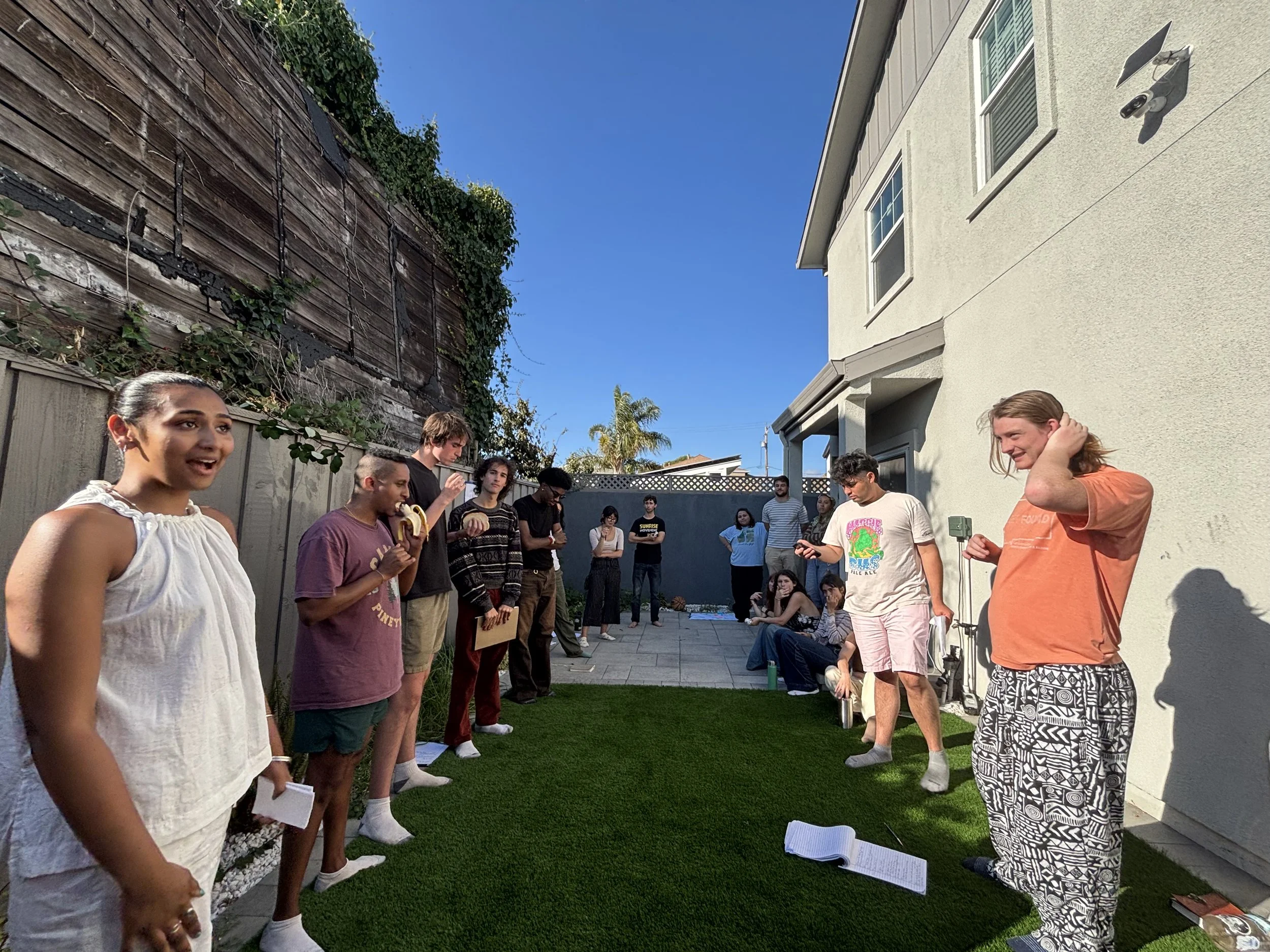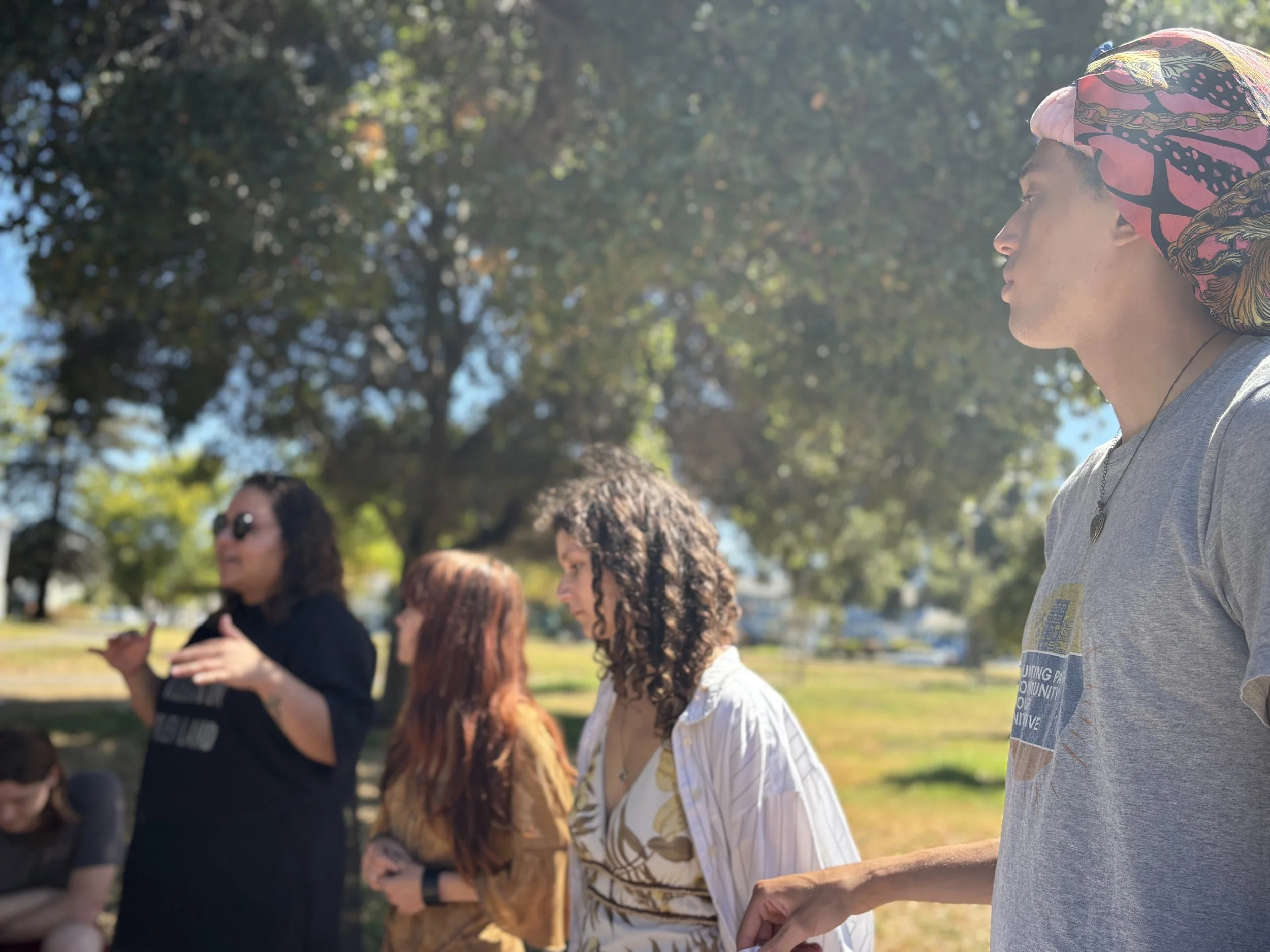Reflections from Oakland:
On Community, Trust, and Collective Identity
This past weekend, I joined an intensive with the Sunrise Movement in Oakland, California. I went in expecting training, strategy, and long conversations about climate justice. What I didn’t expect was to be so profoundly struck by the brilliance of the young people around me, or to feel such deep gratitude for the generosity and hospitality of new friends who opened their homes and hearts.
Being held in that space reminded me that movements are not built by strategy alone, they are built by trust. By the radical act of showing up for one another, listening, cooking for one another, sharing food, and making decisions together. Community isn’t an abstract concept, it’s lived, embodied, and deeply felt.
Wherever I go, I take my community with me.
As I return to my birthplace, and nurture friendships here at home. I reflect on identity as inseparable from community, family, and relationship. There is no “I” without “us.” Our existence is meaningful through connection with others. A true relationship doesn’t just mean co-existing, it means being enriched and shaped by the presence of others.
This truth isn’t new. Many Indigenous traditions have long taught that identity is holistic: inseparable from ancestors, the land, and the larger web of life. The Lakota teaching passed down from White Buffalo Calf Woman says:
That teaching echoes in the way Sunrise spaces seek to embody collective care. When we make decisions, when we lift each other up, we are practicing a way of being that resists the individualism that isolates and fractures.
In Black Elk Speaks, the Lakota healer Black Elk reflected on seeing Europe for the first time:
His words continue to be relevant today. The disconnection he observed between people, from the earth, and from future generations, continues to shape the crises we face today.
But there is another way. Donald Warne, MD, MPH, member of the Oglala Lakota tribe from Pine Ridge, South Dakota, who comes from a long line of traditional healers and medicine men, reminds us:
At the intensive, I caught glimpses of what that could look like in practice: circles of trust, food shared without question, laughter in late-night conversations, tensions named in radical honesty and gently resolved with emotional maturity, the courage of young leaders stepping into responsibility. It was a reminder that community is not something we build once and for all, it is something we practice, moment by moment.
We are held by those who came before us, who prayed for our well-being. We are responsible to those who will come after us, who will inherit the earth shaped by our choices.
To walk in truth means acknowledging our collective history of colonization and learning from traditions that honor interconnectedness. To walk in trust means believing that our liberation is bound together, that the hurt of one is the hurt of all, and the honor of one is the honor of all.
This weekend in Oakland, I remembered what it feels like to live inside that truth. And I carry it with me into this tumultuous new phase of my life.



